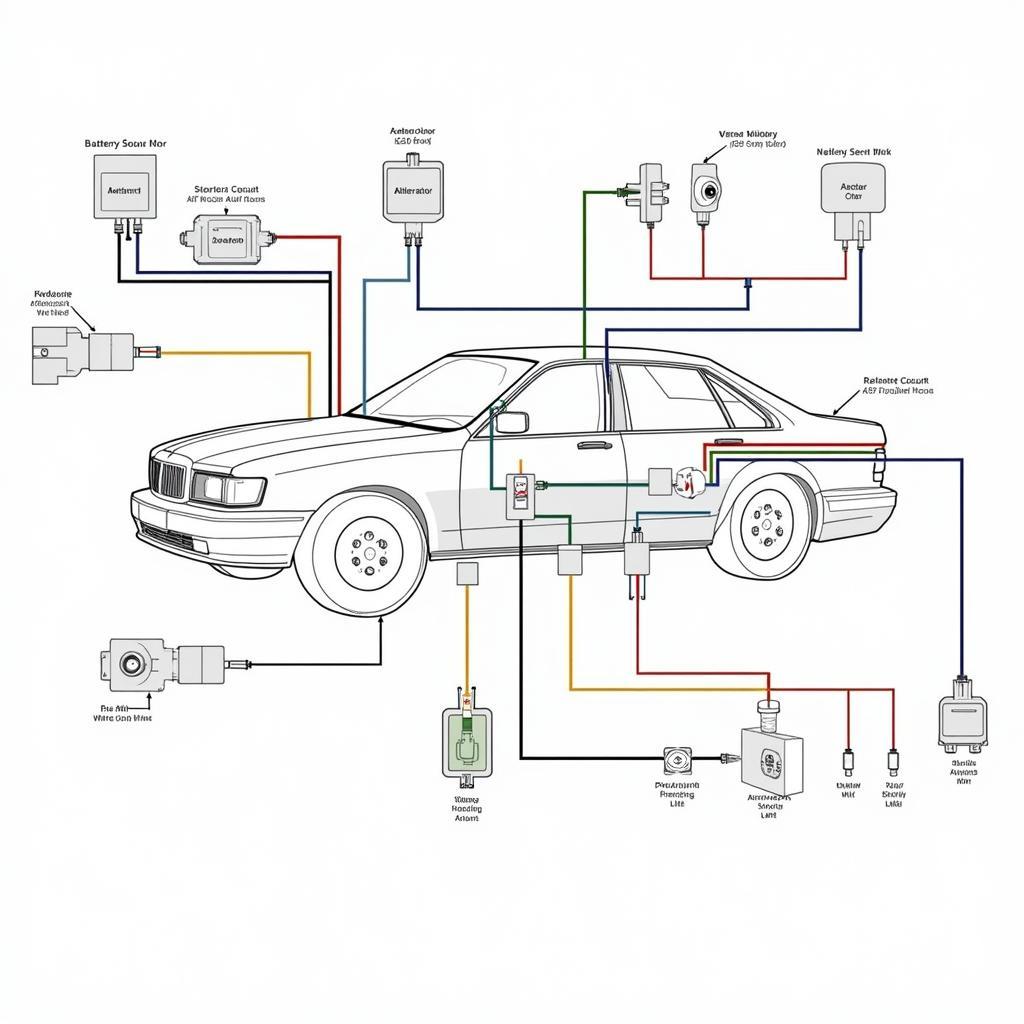Maintaining and fixing your car is an essential skill for any car owner, whether you’re a seasoned mechanic or a novice. By understanding the basics of car maintenance and repair, you can save money, improve your car’s performance, and keep your vehicle running smoothly for years to come.
This comprehensive guide covers everything from routine maintenance tasks to common car problems and their solutions. We’ll delve into essential tools and techniques, and offer practical advice for diagnosing and fixing various issues.
Essential Car Maintenance Tips
Regular maintenance is crucial for preventing major car problems and keeping your vehicle running smoothly. Here are some key tasks to keep your car in top shape:
1. Oil Change
Changing your car’s oil regularly is critical for lubrication and engine health. Oil lubricates moving parts, reduces friction, and prevents wear and tear.
- Frequency: Most car manufacturers recommend an oil change every 3,000 to 5,000 miles, but check your owner’s manual for specific recommendations.
- Tools: Oil filter wrench, oil drain pan, funnel, and new oil.
2. Air Filter Replacement
A clean air filter ensures proper airflow to the engine, improving fuel efficiency and performance.
- Frequency: Every 12,000 to 15,000 miles or as needed.
- Tools: Screwdriver, new air filter.
3. Tire Pressure Check
Maintaining the correct tire pressure is essential for safe driving, fuel economy, and tire life.
- Frequency: At least once a month or before a long trip.
- Tools: Tire pressure gauge.
4. Battery Check
A weak or faulty battery can cause starting problems.
- Frequency: Every six months or when you notice slow starting or dimming lights.
- Tools: Multimeter or battery tester.
5. Brake Inspection
Regular brake inspections ensure safe braking performance.
- Frequency: Every 12,000 to 15,000 miles or as needed.
- Tools: Brake fluid tester, brake pad thickness gauge.
6. Coolant Check
Coolant prevents engine overheating.
- Frequency: Every 24,000 to 30,000 miles or as needed.
- Tools: Coolant tester, funnel.
Common Car Problems and Solutions
From flat tires to engine issues, every car owner encounters problems from time to time. Here are some common car problems and how to fix them:
1. Flat Tire
A flat tire is a common occurrence, and you can easily fix it with a spare tire and a jack.
- Tools: Jack, lug wrench, spare tire.
2. Dead Battery
A dead battery can be jump-started using another car and jumper cables.
- Tools: Jumper cables, another car with a working battery.
3. Overheating Engine
An overheating engine can be caused by low coolant levels, a faulty thermostat, or a clogged radiator.
- Tools: Coolant, funnel, thermostat, radiator flush solution.
4. Check Engine Light
The check engine light indicates a problem with the engine’s emissions system.
- Tools: OBD2 scanner, repair manual.
5. Worn-Out Brake Pads
Worn-out brake pads can lead to squealing, grinding, and reduced braking performance.
- Tools: Brake pad thickness gauge, new brake pads.
6. Faulty Spark Plugs
Faulty spark plugs can cause misfires, poor fuel economy, and rough idling.
- Tools: Spark plug socket, new spark plugs.
Troubleshooting Tips for Common Car Issues
Expert Tip: “If you’re unsure about any repairs, it’s always best to consult a professional mechanic,” says John Smith, a certified automotive technician with 20 years of experience. “Attempting complex repairs without proper knowledge can lead to further damage and costly repairs.”
Expert Tip: “Always follow the manufacturer’s recommended maintenance schedule and use genuine parts,” adds Sarah Jones, a veteran auto mechanic. “This will help ensure the longevity and reliability of your vehicle.”
Expert Tip: “Keep a basic toolkit in your car, including a jumper cable set, a tire pressure gauge, and a basic set of tools for minor repairs,” suggests David Lee, an automotive expert. “This will equip you to handle small issues and ensure your safety on the road.”
Conclusion
Fixing your car doesn’t have to be overwhelming. By understanding the basics of car maintenance and repair, you can save money, improve your car’s performance, and extend its lifespan. Remember to consult a professional mechanic for any complex issues, and always prioritize safety when working on your vehicle.
AutoTipPro is here to help! If you have any questions or need assistance with your car repairs, feel free to contact us at +1 (641) 206-8880 or visit us at 500 N St Mary’s St, San Antonio, TX 78205, United States. We’re happy to assist you with all your automotive needs.
FAQ
Q: What are the most common car problems?
A: The most common car problems include flat tires, dead batteries, overheating engines, check engine lights, worn-out brake pads, and faulty spark plugs.
Q: How often should I change my car’s oil?
A: Most car manufacturers recommend an oil change every 3,000 to 5,000 miles. Check your owner’s manual for specific recommendations.
Q: What are the benefits of regular car maintenance?
A: Regular maintenance helps prevent major car problems, improve fuel efficiency, enhance performance, and extend the lifespan of your vehicle.
Q: How can I diagnose car problems myself?
A: You can use a basic OBD2 scanner to read fault codes and consult a repair manual for troubleshooting tips. However, for complex issues, it’s always best to seek professional help.
Q: What are some essential tools for car maintenance?
A: Essential tools include a jack, lug wrench, spare tire, jumper cables, tire pressure gauge, oil filter wrench, oil drain pan, funnel, screwdriver, and a basic set of hand tools.
Q: How can I learn more about car repair?
A: There are many resources available for learning about car repair, including online tutorials, repair manuals, and automotive courses. You can also consult a trusted mechanic for guidance.





Leave a Reply